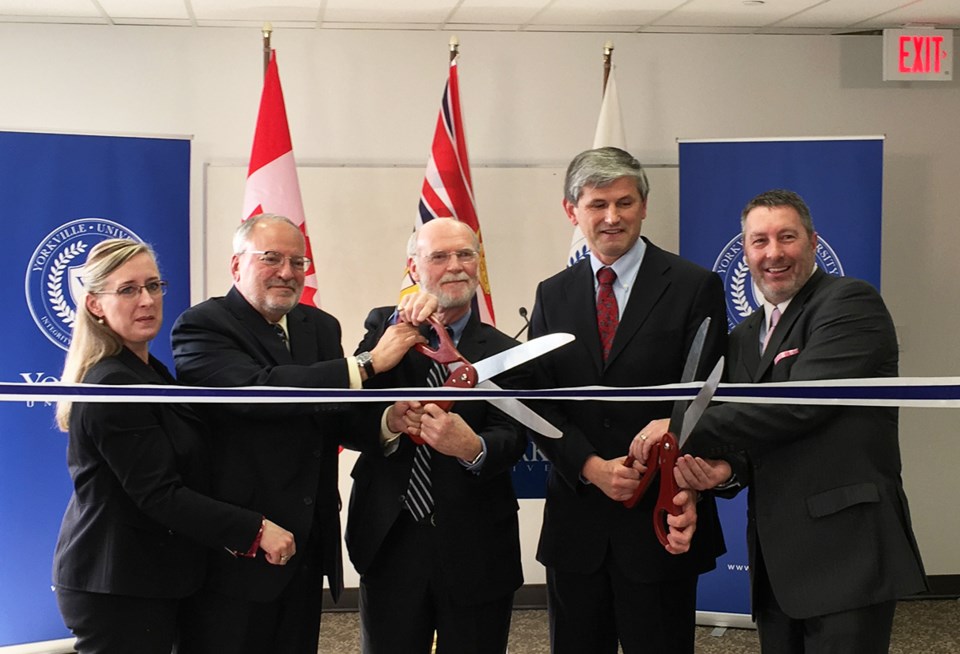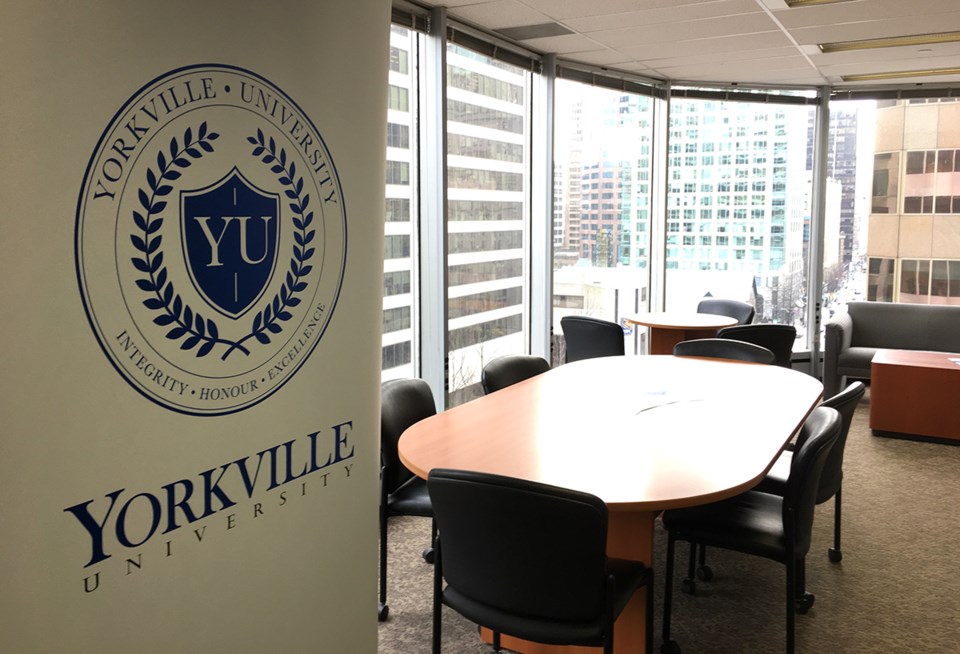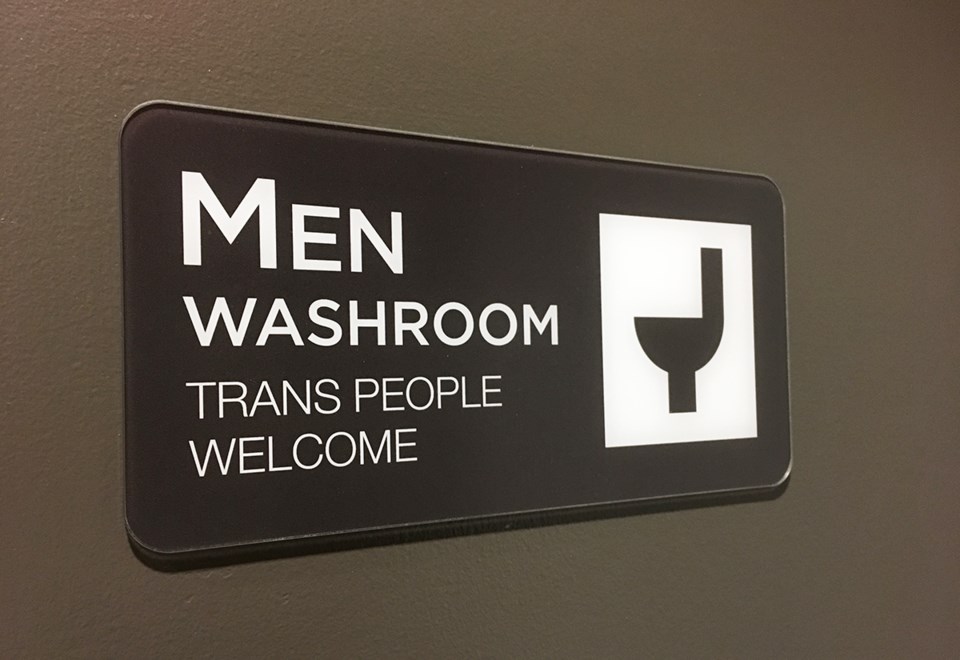Vancouver has a new university — and it’s on the seventh floor of an office tower overlooking the business district where graduates may one day hope to work.
Yorkville University will officially start classes at 1090 West Georgia Street on April 1 but some students may never visit the campus.
This is the Fredericton, New Brunswick-based degree-granting university’s first physical campus.
“Now we have added ‘placeness’ to all our services and supports,” university president Dr. Rick Davey said at Friday’s ribbon cutting with the provincial minister of advanced education, Andrew Wilkinson.
The campus will initially focus on granting bachelor of business administration degrees featuring specializations in accounting, energy management, project management and supply chain management. “Rigorous, practical-oriented education is the pathway to career success and personal growth,” Davey said. “We allow students to start and continue their education despite challenges of geography, family and health.”

The programs are custom-designed to help fulfill the needs of employers in those sectors, which are important components of British Columbia’s economy.
It is also designed to meet the needs of adult students who are balancing work and family as they try to enhance their job skills.
“We’re trying to remove barriers to education, improve access and make it engaging,” says campus principal Dr. Daren Hancott. “You can be out of high school or college or 40 years old with a certificate and 20 years of experience. But you have to work hard.”
The university is all about choice. You can choose to come to the campus or do all the courses online with scheduled online classes with teachers and fellow students via Skype.
“We will be a vibrant, engaged learning community where students can interact with instructors and fellow students,” said Dr. Deirdre Pickerell, the university’s dean of academics.
Courses are rooted in professional standards. As well, the credits will be recognized should students decide to carry on to become a chartered professional accountant or get Project Management Institute certification.
“You don’t have to do what you’ve already done,” Hancott says of the university’s ability to recognize a student’s previous education.

Vancouver is becoming an educational hub, Pickerell said, and B.C. is supportive of private universities.
Wilkinson said that one million jobs will be opening up in the province by 2025; an estimated 700,000 Baby Boomers will retire and the other jobs will be created by growth.
The province has 25 public post-secondary institutions and 350 private institutions, 17 of which have been certified by the independent Degree Quality Assessment Board, he said. Although Australia boasts that it has become an education hub, B.C. has 130,000 international students, 40 per cent more than Australia.
“This is no small accomplishment,” he said of Yorkville University’s arrival in the province. “We’re delighted to have them…. This is a big win for British Columbia.”
Asked whether the high cost of accommodation is a deterrent to international students, Wilkinson said “the 130,000 students who are here have not complained about the cost of living, probably because Canada is still a bargain compared to the United States and we’re offering a much more forward and welcoming environment.”

(At the West Georgia campus, the washrooms are already signed “Trans People Welcome.”)
The campus has approximately 10 administrative staff and 10 faculty members, Hancott said. They hope to grow to a total of 30 to 40 staff in the next four years.



